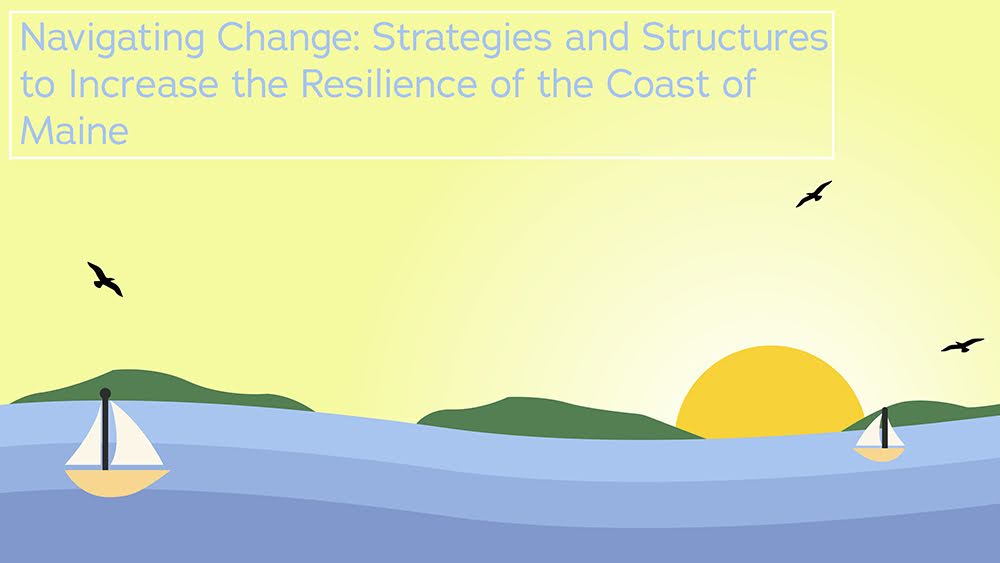On Feb. 28, the Mitchell Center hosted a talk with Suzanne MacDonald entitled “Navigating Change: Strategies and Structure to Increase the Resilience of the Coast of Maine.” MacDonald serves as the Chief Community Development Officer of the Island Institute where she has been organizing economic, social and climate resilience programs. The Island Institute works with coastal leaders to promote resilience and create solutions to address Maine’s issues along the coast.
“It’s really easy to feel small, inconsequential, but in some ways I feel like the place-based work that so many of us are concerned about, and care so much about is almost more important,” MacDonald said. “Oftentimes some of the conflict we see in the world does come down to place and it certainly does come down to relationships, and our ability to navigate through some of the world’s most challenging situations, like climate change. I believe the solutions for that are going to be rooted in place and in relationships.”
MacDonald discussed the importance of relationships and innovation at the institute. The Island Institute developed its internal structures and systems to help Maine’s 152 island and coastal communities and their needs. Building resilience requires the dedicated efforts of a wide variety of individuals, making community engagement a top priority for the Institute.
“We really seek to collaborate closely with other partner organizations, policymakers, regulators, philanthropists, other folks who have interest in affecting change on the coast of Maine and helping it to continue to be the special place that it is to live and work in today,” MacDonald said. “Our three areas of focus right now are creating climate solutions, building more resilient economies and enhancing strong leadership along the coast within the climate work … We’ve also supported efforts around community and business owned renewable energy, and increasingly are working with municipalities and businesses.”
MacDonald continued by elaborating on the importance of connecting with people familiar with the issues and who have the experience to address them with innovative, practical solutions.
“We, I think, try to ask the question of who’s not at the table, and what might the barriers to being at the table look like for those who might be inadvertently left behind from the community process or not able to benefit as fully from community-based projects, and I think in some ways, as the world have worked to begin to do a better job of centering the concepts of equity,” MacDonald said. “We really believe in solutions being unlocked from the work on the ground and getting the right people in the room to compare notes on things, and that really amazing things can emerge when you just create the space.”
MacDonald’s passion for building relationships across Maine’s coastal communities enables her to lead the Island Institute’s Community Energy Program, which engages New England’s island communities in the work of strategizing solutions for lowering high energy costs. These initiatives hope to lay the groundwork for future generations to become leaders in these coastal communities.
“It’s really exciting to see increased focus on these types of partnerships, both because I think benefits can flow more equitably that way, and there’s just more opportunity I think for more durable impact,” MacDonald said. “But it takes a long time when people are doing other things, and there are competing priorities within the community.“You need to be patient. But I think what we find is that in building deep relationships and really listening about what the priorities are, you can find opportunities for incremental change along the way.”
The George J. Mitchell Center for Sustainability Solutions will host their next discussion in the Sustainability Series on Monday, March 7. They will be hosting Sam Roy, a member of the Maine Emergency Management Agency, to discuss reducing natural disaster risks. For more information about how to attend visit their events page at https://umaine.edu/mitchellcenter/event/talk-dukes-of-hazards-reducing-natural-disaster-risks-with-community-planning/ .








